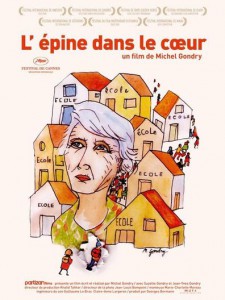
Michel Gondry chronicles the life of Gondry family matriarch, his aunt Suzette Gondry, and her relationship with her son, Jean-Yves.
Read More »
Documentary
Mangekyô / Kaleidoscope (1999) Naomi Kawase, Shinya Arimoto, Mika Mifune, Machiko Ono, Documentary
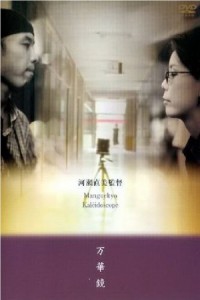
Naomi Kawase collaborates with Shinya Arimoto, a Taiyo award-winning photographer she knows from university, to create a photo album of Machiko Ono (who Kawase scouted for her previous feature film Moe no Suzaku) and Mika Mifune (daughter of famous actor Toshiro Mifune) with the idea to contrast these two aspiring actresses, Ono coming from the rural Nara and Mifune from Tokyo. Kawase documents the photo shooting and interviews Arimoto, Ono and Mifune as the work progresses, while the tension between her and Arimoto increases over disagreement on the direction of the project.
Read More »
We Come as Friends (2014) Hubert Sauper, Documentary
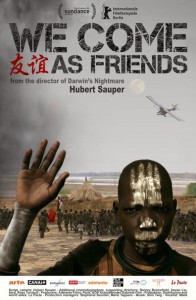
As war-ravaged South Sudan claims independence from North Sudan and its brutal President, Omar al-Bashir, a tiny, homemade prop plane wings in from France. It is piloted by eagle-eyed documentarian Hubert Sauper, who is mining for stories in a land trapped in the past but careening toward an apocalyptic future.
Read More »
How Much Does Your Building Weigh, Mr Foster? (2010) Carlos Carcas, Norberto López Amado, Norman Foster, Deyan Sudjic, Documentary, Biography
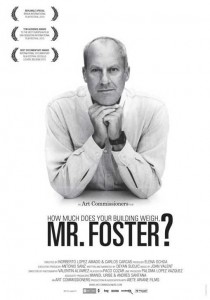
The film traces the rise of one of the world’s premier architects, Norman Foster, and his unending quest to improve the quality of life through design.
Read More »
Un film comme les autres / A Film Like Any Other (1968) Jean-Luc Godard, Documentary, Drama

Workers on a car factory argue with revolutionary students.
Read More »
McLibel (2005) Franny Armstrong, Ken Loach, Helen Steel, Dave Morris, Bruce Alexander, Documentary
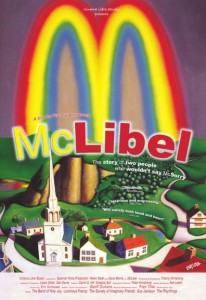
McDonald’s loved using the UK libel laws to suppress criticism. Major media organisations like the BBC and The Guardian crumbled and apologised. But then they sued gardener Helen Steel and postman Dave Morris. In the longest trial in English legal history, the “McLibel Two” represented themselves against McDonald’s £10 million legal team. Every aspect of the corporation’s business was cross-examined: from junk food and McJobs, to animal cruelty, environmental damage and advertising to children. Outside the courtroom, Dave brought up his young son alone and Helen supported herself working nights in a bar. McDonald’s tried every trick in the book against them. Legal manoeuvres. A visit from Ronald McDonald. Top executives flying to London for secret settlement negotiations. Even spies. Seven years later, in February 2005, the marathon legal battle finally concluded at the European Court of Human Rights. And the result took everyone by surprise – especially the British Government.
Read More »
Peace (2010) Kazuhiro Sôda, Shiro Hashimoto, Hiroko Kashiwagi, Toshio Kashiwagi, Documentary, Drama, History
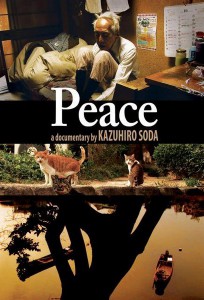
What is peace? What is coexistence? And what are the basis for them? PEACE is a visual-essay-like observational documentary, which contemplates these questions by observing the daily lives of people and cats in Okayama city, Japan, where life and death, acceptance and rejection are intermingled.
Read More »
Freakonomics (2010) Heidi Ewing, Alex Gibney, James Ransone, Tempestt Bledsoe, Bill Gates, Documentary
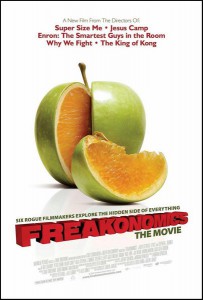
The field of economics can study more than the workings of economies or businesses, it can also help explore human behavior in how it reacts to incentives. Economist Steven D. Levitt and journalist Stephen J. Dubner host an anthology of documentaries that examines how people react to opportunities to gain, wittingly or otherwise. The subjects include the possible role a person’s name has for their success in life, why there is so much cheating in an honor bound sport like sumo wrestling, what helped reduce crime in the USA in the 1990s onward and we follow an school experiment to see if cash prizes can encourage struggling students to improve academically.
Read More »
Here’s to the Future! (2014) Gina Telaroli, John Budge, Begonia Colomar, Daniel Kasman, Documentary
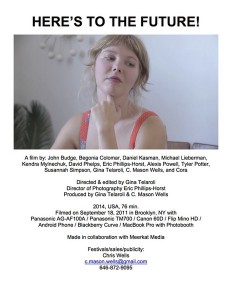
On a late-summer Sunday in 2011, a female director gathers a team of filmmakers, writers, musicians, artists, critics, and friends in an apartment to recreate a scene from Michael Curtiz’s Depression-era drama The Cabin in the Cotton. Over plates of pasta and glasses of red wine, a round robin of non-professional actors take turns performing the same scene, again and again, In different permutations. With a freedom Influenced by pre–Code Hollywood, cameras, phones, and laptops are scattered around & set at almost every possible angle, documenting the action both in front of and behind the camera as it unfolds, from rehearsals to equipment adjustments to the banter between takes. An intimate. playful, and spontaneous look Into the collaborative cinematic process emerges. a snapshot of the filmmaker’s perennial struggle to capture fleeting moments before the day (and light) slip away.
Read More »
The Pierre Woodman Story / A Pierre Woodman sztori (2009) András Kovács M., Péter Szajki, Documentary, Erotic
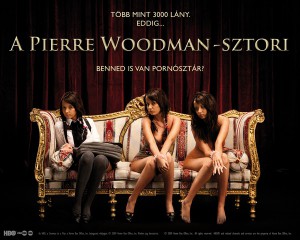
This documentary shows the life of French porn film director and producer Pierre Woodman, who has discovered several dozen Hungarian, Czech, Slovak, and Russian girls for the porn industry; girls who did not have a second though about participating in Pierre’s castings. This French-born entrepreneur and dare-devil is famous and envied for recording his porn movie castings, during which he “tests“ the candidates. Monsieur Woodman is 45 years old and has had 3000 sexual contacts with women so far.
Read More »